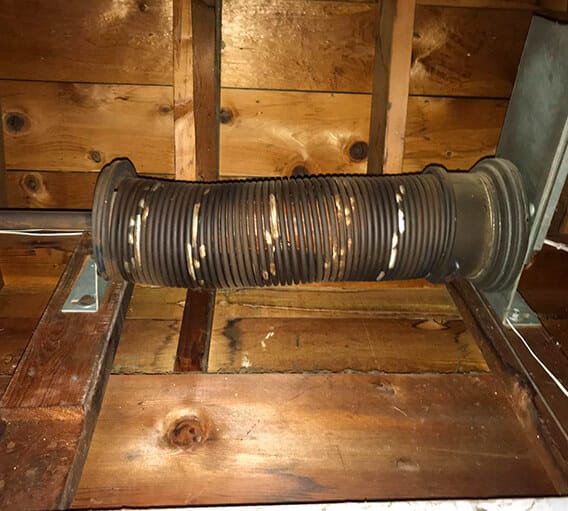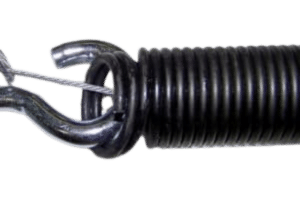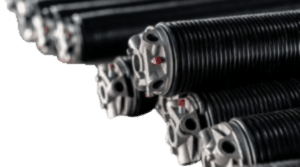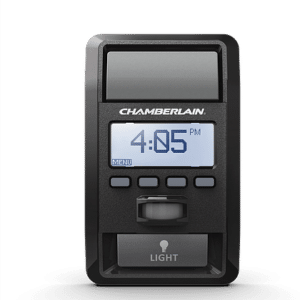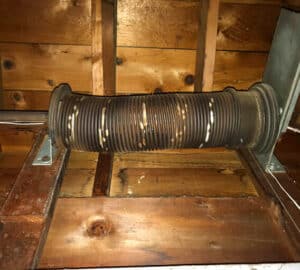When it comes to garage doors, the choice between torsion springs and extension springs is an important one. These springs are responsible for counterbalancing the weight of the garage door, allowing it to open and close smoothly. Understanding the difference between torsion springs and extension springs can help you make an informed decision when it’s time to replace or repair your garage door springs.
In This Blog:
- What is an Extension Spring and Their Applications
- What is a Torsion Spring and Their Applications
- Key Differences Between Torsion Springs and Extension Springs
- Pros and Cons of Torsion Springs
- Pros and Cons of Extension Springs
- Which is Better: Torsion or Extension Springs?
- Are Longer Torsion Springs Stronger?
- Can You Use a Garage Door Opener with Extension Springs?
- How to Maintain Your Garage Door Springs and How Superior Garage Door Can Help
What is an Extension Spring and Their Applications
Extension springs are typically found on either side of the garage door, parallel to the horizontal tracks. These springs work by stretching and contracting to provide the necessary force to lift and lower the garage door. Extension springs are commonly used in residential garage doors and are suitable for doors with standard weight and size.
The primary advantage of extension springs is their affordability. They are relatively inexpensive compared to torsion springs, making them a popular choice for homeowners on a budget. However, it’s important to note that extension springs have a limited lifespan and may need more frequent replacement compared to torsion springs.
What is a Torsion Spring and Their Applications
Torsion springs, on the other hand, are mounted horizontally above the garage door opening. These springs use torque or twisting force to lift and lower the door. Torsion springs are typically found in commercial and heavy-duty residential garage doors, as they are capable of supporting heavier doors with ease.
Torsion springs offer several advantages over extension springs. They are known for their durability and longevity, requiring less frequent replacement. Additionally, torsion springs provide a smoother and more controlled operation, reducing the risk of accidents or damage to the garage door. However, it’s worth noting that torsion springs are more expensive than extension springs.
Key Differences Between Torsion Springs and Extension Springs
To better understand the differences between torsion springs and extension springs, let’s compare them side by side:
| Aspect | Torsion Springs | Extension Springs |
|---|---|---|
| Mounting | Horizontal above the door opening | Parallel to the horizontal tracks |
| Suitable for | Commercial and heavy-duty residential doors | Standard weight and size residential doors |
| Lifespan | Longer lifespan, less frequent replacement | Shorter lifespan, more frequent replacement |
| Operation | Provides smoother and more controlled operation | May cause jerking or unbalanced movement |
| Cost | More expensive | Less expensive |
Pros and Cons of Torsion Springs
Torsion springs offer several advantages. As mentioned earlier, they are known for their durability and longer lifespan. They provide a smoother and more controlled operation, reducing the risk of accidents or damage to the garage door. Additionally, torsion springs are suitable for heavier doors, making them ideal for commercial and heavy-duty residential applications.
However, torsion springs come at a higher cost compared to extension springs. They also require professional installation due to their complex nature. Additionally, if a torsion spring breaks, it can be more challenging to repair or replace, as specialized tools and knowledge are required.
Pros and Cons of Extension Springs
Extension springs have their own set of advantages and disadvantages. They are more affordable compared to torsion springs, making them a popular choice for homeowners on a budget. They are also easier to install and replace, as they don’t require specialized tools or knowledge.
However, extension springs have a shorter lifespan and may need more frequent replacement compared to torsion springs. They may also cause jerking or unbalanced movement when opening and closing the garage door, which can be a safety concern.
Which is Better: Torsion or Extension Springs?
The choice between torsion springs and extension springs ultimately depends on your specific needs and preferences. If you have a heavy garage door or require a smoother operation, torsion springs are the better option. They offer greater durability and longevity, albeit at a higher cost.
On the other hand, if budget is a primary concern and you have a standard weight and size residential door, extension springs can be a suitable choice. They are more affordable and easier to install, although they may require more frequent replacement.
Are Longer Torsion Springs Stronger?
The length of a torsion spring does not necessarily determine its strength. The strength of a torsion spring is determined by its wire size and the number of coils. The wire size refers to the thickness of the wire used to make the spring, while the number of coils affects the overall torque or twisting force the spring can generate.
Therefore, it’s important to choose the appropriate wire size and number of coils based on the weight and size of your garage door. Consulting with a professional garage door technician can help ensure that you select the right torsion spring for your specific needs.
Can You Use a Garage Door Opener with Extension Springs?
Yes, it is possible to use a garage door opener with extension springs. However, it’s important to ensure that the garage door opener is properly adjusted to accommodate the weight and tension of the extension springs. Improper adjustment can lead to premature wear and tear on the opener or even cause it to malfunction.
It’s recommended to consult with a professional garage door technician to properly adjust the garage door opener. They can ensure that the opener is compatible with the extension springs and adjust the necessary settings for optimal performance and longevity.
How to Maintain Your Garage Door Springs and How Superior Garage Door Can Help
Proper maintenance of your garage door springs is essential to ensure their longevity and safe operation. Here are a few tips to keep in mind:
- Regularly inspect the springs for signs of wear, such as rust or fraying.
- Lubricate the springs with a silicone-based lubricant to reduce friction.
- Avoid tampering with or adjusting the springs yourself, as this can be dangerous.
- Schedule regular maintenance and inspection by a professional garage door technician.
At Superior Garage Door, we offer comprehensive garage door services, including spring repair, replacement, adjustment, and maintenance. Our team of experienced technicians can help you keep your garage door springs in optimal condition, ensuring the safety and smooth operation of your garage door. Whether you need torsion spring or extension spring services, we got you covered.
Frequently Asked Questions
Q: How often should I replace my garage door springs?
A: The lifespan of garage door springs can vary depending on factors such as usage, climate, and maintenance. On average, torsion springs may last around 7-9 years, while extension springs may last around 4-6 years. However, it’s important to note that these are rough estimates, and regular inspection by a professional is recommended.
Q: Can I replace the springs myself?
A: Garage door spring replacement can be dangerous and should be left to professionals. The high tension and weight of the springs pose a risk of injury if mishandled. It’s best to consult with a professional garage door technician who has the necessary tools and expertise to replace the springs safely.
Q: How much does it cost to replace garage door springs?
A: The cost of garage door spring replacement can vary depending on factors such as the type of spring, the size of the door, and the location. On average, torsion spring replacement can cost between $200 and $400, while extension spring replacement may range from $150 to $300. It’s recommended to obtain a quote from a professional garage door technician for an accurate cost estimate.
Conclusion
Choosing between torsion springs and extension springs for your garage door is an important decision that can impact its operation, longevity, and safety. Torsion springs offer durability and smoother operation, making them suitable for heavier doors. Extension springs, on the other hand, are more affordable and easier to install, but may require more frequent replacement.
Proper maintenance and regular inspection by a professional garage door technician are crucial to ensure the safe and efficient operation of your garage door springs. By understanding the differences and considering your specific needs, you can make an informed decision and enjoy a well-functioning garage door for years to come.
Contact Superior Garage Door today for all your garage door spring repair and maintenance needs. Our experienced technicians in your location are ready to assist you and ensure the safe and efficient operation of your garage door.


